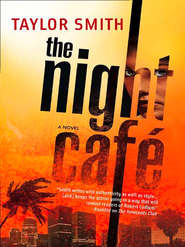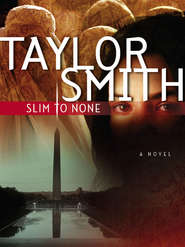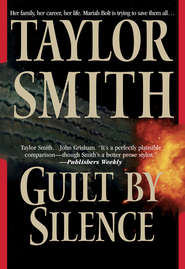По всем вопросам обращайтесь на: info@litportal.ru
(©) 2003-2024.
✖
Liar's Market
Автор
Год написания книги
2019
Настройки чтения
Размер шрифта
Высота строк
Поля
CODE WORD ACCESS ONLY
NOT FOR DISTRIBUTION
FEDERAL BUREAU OF INVESTIGATION
INTERVIEW TRANSCRIPTION
(continued…)
So when you arrived for the reception that afternoon, Carrie, you didn’t know you wouldn’t be attending the ambassador’s dinner?
No. Apparently Drum had left messages for me on my mobile and at home, but for some reason, I hadn’t gotten either of them. I gather he’d also asked the Gunny to watch out for me—that’s the Gunnery Sergeant, head of the Marine Guard detachment.
Sergeant Jenks, yes. He’s been interviewed on several occasions. We’ve got his full testimony covering that day.
Right. Well then, you know he was on duty in the lobby. He was tied up when I came in, so it was Drum’s secretary who took me upstairs to the reception. She was also the one who told me I wasn’t needed at the dinner.
Would it surprise you to learn there’s no record your husband ever called your cell phone that day?
He said he did. I thought the voice-mail system must have been down.
It was working just fine, according to company records. And although the phone at your apartment did receive one call at about…let’s see…12:27 p.m. GMT—
That’s when he called to tell me I was invited to the reception and dinner.
Right. According to your home-phone records, that was the only incoming call that day.
So, what are you saying?
I’m saying he lied. Your husband’s real purpose was to lure you out that afternoon.
Lure me out?
Yes. That’s why he didn’t bother calling back when the dinner requirement disappeared. He made a special point of going down to the lobby and telling Sergeant Jenks he’d called you to try to cancel, but we think he was just covering his tracks.
You make it sound like he was laying a trap for me. What are you—
Let’s just carry on with that day, Carrie. Did you see anything out of the ordinary when you arrived? Anyone who seemed to be watching you as you went in?
No. Not that I would have noticed, probably. It was a horrible day, pouring rain. I was hunched down under an umbrella and so was everyone else in the street.
Did you take a taxi?
No, it was just a few blocks. I probably should have, but I didn’t realize how hard it was raining. I walked over.
So you weren’t approached by a taxi or anyone else in the street? Didn’t notice that you were being followed?
Not that I recall. I talked briefly to the Marines at the front gate when I got to the embassy. I knew them, of course. And then, the receptionist at the front desk, who called up to say I’d arrived. That’s when Drum’s secretary came down to take me up and told me about the cancellation.
And how did your husband seem when you saw him?
I don’t know. Fine. Normal, I guess.
He didn’t seem surprised that you’d actually made it over? You didn’t notice anything unusual about his reaction?
Not really…unless…I don’t know…
So there was something?
I’m not sure. It was a busy day for him. High profile, you know, with the senators in town and him responsible for their program while they were in London. And it was a tense time for everyone, of course with the heightened security climate since September 11.
But there was something else. What was it?
I’m not sure. It’s hard to put my finger on it.
Try. Tell me about that afternoon, Carrie. What happened when you attended the reception for those visiting politicians?
CHAPTER FOUR
American Embassy, Grosvenor Square, London
5:41 p.m.
Carrie’s facial muscles were beginning to ache from the effort of so much forced smiling. Her feet, perched on impractical three-inch heels, were wet and cold, and as she shifted her weight on the thick pile carpet, she felt water squishing in the toes of her strappy black Manolos. She’d probably ruined her most expensive shoes, wearing them out on such a rainy afternoon, but Drum had told her to “spiff it up” when he’d called unexpectedly and pressed her to put in an appearance at this late afternoon reception and the dinner to follow.
Now, it turned out she wasn’t needed at dinner.
The expendable chair-filler, that’s me, she thought, dodging the frond of one of the tall, potted palms that dotted the perimeter of the long room. She kept finding herself backed into the thing, wedged into a corner by two of the reception’s more garrulous guests, and it felt as if a persistent spider were landing on her bare neck every few minutes. It was beginning to get really irritating.
She took a dangerous sip from her wineglass—dangerous because she was starving and now there wasn’t even the prospect of a good meal to fill her empty stomach. Not that the wine did anything to improve her mood, which was becoming grumpier by the minute, knowing she’d trudged out in the pouring rain for nothing more than a tepid glass of mediocre California Chardonnay and yet another chance to observe the diplomatic version of that ancient male ritual, the pissing contest.
In this environment, it meant feigning to possess more insider access than the other guy—with “feign” being the operative word here, Carrie decided, watching her two companions over the rim of her wineglass. One was an ambitious young Bostonian, who had to be fresh out of college, with that thick, shining mop of Ivy League hair and those darting, nervous eyes that belied a self-promoting line of patter. Carrie had already forgotten his name. David? Douglas…something? He was a junior aide to one of the visiting senators. She was guessing it was his first official trip abroad.
The other was Nigel St. John (pronounced “Sin-jin,” she had to keep reminding herself, like that actor who always insisted that “Ralph” was really “Rafe”—God, but some Brits could be pretentious…). St. John was a minor British Foreign Office functionary who always seemed to latch on to her whenever she was dragooned into attending one of these official cocktails.
Carrie would have been happy to leave the two of them to their own devices, now that she’d done her duty and made introductions and a little small talk, except that Nigel kept clutching her arm and drawing her back into the circle of their conversation every time her gaze drifted over his shoulder in search of some avenue of escape.
The embassy’s top-floor reception area was a large, open room painted a pale antique yellow, with cherry wainscoting and crown moldings imported from the Carolinas and deep blue broadloom woven in the carpet mills of Georgia. Occasional chairs, chests and tables scattered around the room were eighteenth-and nineteenth-century Philadelphia Hepplewhite and Chippendale pieces. An ever-changing array of canvases by contemporary American artists lined the gallery-like walls.
This was where America put its best foot forward in the British capital. Guests were expected to do no less.
The scent of hot seafood canapés and expensive colognes drifted over the assembled crowd of sixty or so guests invited to meet the visiting senators this afternoon. Tinkling glasses provided a high counterpoint to the deep drone of mostly male voice holding forth from every part of the room, punctuated by the occasional eruption of mock-hearty laughter.
As she looked over the room, seeking out her husband, Carrie recognized a number of faces belonging to the usual crowd of Brits and officials from other friendly embassies who regularly showed up at these functions and hosted their own in return. One or two returned Carrie’s glance with acknowledging nods that ranged from merely polite to downright lascivious—the latter from a randy Australian charge who smirked as he checked her out from head to toe and back up again, with pointed pauses at breast level. Carrie was tempted to offer a stiff-fingered salute in return, but that would have been considered poor protocol and, in any case, took more nerve than she possessed.
Instead, she turned away from him, and as she did, she spotted Drum over by the tall, arched windows with Senator Watkins, head of the Senate’s select intelligence committee.
Her husband’s raised eyebrows when Carrie had first walked in the room, followed by a quick smile and nod, told her she’d probably passed muster—maybe even exceeded his expectations. Well, fine. With the exception of an ambassador’s spouse, whose role as chatelaine made her something of a social force to be reckoned with, nobody on the diplomatic circuit paid much attention to a mere “wife of.” After seven years of marriage, the last three spent here in the British capital, she’d long since resigned herself to the fact that her primary job at these affairs was to serve as ornamentation.











